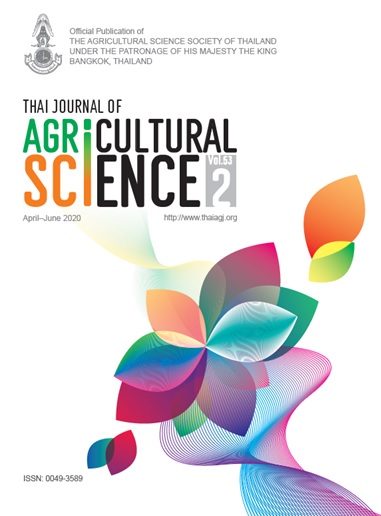Myostatin gene polymorphism and its association with body weight in Nigerian indigenous turkey
Main Article Content
Abstract
Polymorphisms of the myostatin gene have been used as marker–assisted selection in chicken but not in turkey for growth traits. Improvement of Nigeria indigenous turkey will enhance the genetic potentials of local poultry and data on their genetic variation is essential to strategic breeding programs and genetic improvement. Therefore, this study was aimed at investigating the polymorphisms of myostatin gene (MSTN) in Nigerian indigenous turkey using polymerase chain reaction-restriction fragment length polymorphism (PCR–RFLP) method with Mspl restriction enzyme for digestion. Fifty poults were randomly selected for DNA assaying at 10 weeks of age. Genomic DNA extraction from blood samples was done and 599 bp fragment of myostatin was amplified. Data on the weight of the animals were collected every week. The genetic structure of the sampled population was analyzed by POPGENE 32 software. Association of the genotypes with body weight was evaluated using the general linear model (GLM) of SAS 9.2. Three allelic variants A, B and C with frequencies of 0.79, 0.20 and 0.01 were identified and controlled three genotypes AA, AB and AC with frequencies of 0.58, 0.40 and 0.02, respectively. The probabilities values obtained for the likelihood ratio (G2; 0.145757) and chi–square test (X2; 0.342138) for Hardy–Weinberg equilibrium suggest the sampled population were at equilibrium. The observed heterozygosity, Shannon information index, number of effective alleles and Nei’s gene diversity indices in the population were 0.4200, 0.5542, 1.5056 and 0.3358 respectively indicating moderate to high diversity among the population. Body weight showed no significant (P > 0.05) association with genotype at 4, 8 and 12 weeks of age. Myostatin gene is polymorphic andthus create a room for genetic improvement through selective breeding. However, its polymorphic variants did not significantly (P > 0.05) influence body weight in Nigerian indigenous turkey.


